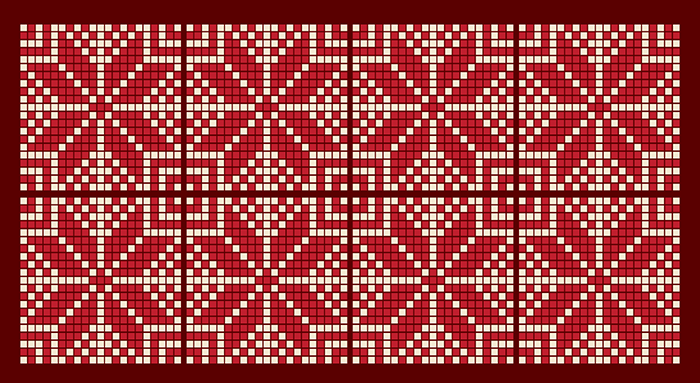
Nikita Tyagi
Israel’s large scale military attacks, air strikes and bombardments have continued relentlessly against the Palestinian territory of Gaza since 7th October 2023. Despite widespread calls for ceasefire across various quarters, Israel has continued to attack Gaza, killing and injuring thousands of people.
However, warrants issued by the International Criminal Court (ICC) for the arrest of Benjamin Netanyahu, Yoav Gallant and Mohammed Deif seem to be a positive step towards ending the violence in Gaza. Several questions arise about the effect of the arrest warrant, its enforceability, the challenges it poses and the way forward. This explainer breaks down the meaning of the arrest warrant and its implications of the attacks against Gaza.
What is the arrest warrant that was issued?
The ICC issued arrest warrants against the Prime Minister of Israel Benjamin Netanyahu, former Defence Minister of Israel Yoav Gallant and Military Commander of Hamas Mohammed Deif (reportedly dead) for committing war crimes and crimes against humanity in Gaza. The warrants were issued based on the application made by Karim A Khan (Prosecutor of the ICC) on 21st November 2024. The applications were made to the ICC pursuant to an investigation initiated by the Office of the Prosecutor under Article 13 and 15 of the Rome Statute and after further referrals by 7 State Parties under Articles 13(a) and 14 of the Rome Statute.
What is an arrest warrant under the Rome Statute and how is it executed?
Article 58 of the Rome Statute empowers ICC to issue arrest warrants post the initiation of the investigation by the Office of the Prosecutor pursuant to a referral as prescribed under Article 13 of the Rome Statute. When the investigation is initiated, the prosecutor can make the request mentioning the name of the accused, details of the crime along with supporting evidence for issuance of the arrest warrant to the ICC, if it appears that a crime within the court’s jurisdiction has been committed.
The ICC cannot execute the warrant, and would require member states to arrest the person in compliance with their obligations under the statute as provided under Article 59 of the Statute.
Upon getting a request for arrest and surrender, the custodial State must instantly take steps to arrest the individual in line with its national laws and the Rome Statute. The arrested individual must promptly appear before a competent judicial authority, which verifies three key aspects: whether the warrant applies to the individual, whether the arrest was conducted properly, and whether their rights were respected. The arrested person has the right to apply for interim release pending their surrender. In deciding such a request, the competent authority in the custodial State evaluates whether there are pressing and extraordinary conditions justifying release and whether safeguards exist to ensure future surrender. Notably, the custodial State’s authority cannot question the validity of the arrest warrant itself, as issued under Article 58.
In case of any interim release application, the pre-trial chamber of the ICC must be informed. The pre-trial chamber can deliver approvals (suggestions which consists of measures to prevent escape). These suggestions must be considered by the custodial State before it delivers its decision on the interim application. Should the State grant interim release, the pre-trial chamber can seek periodic reports on the status of the accused. If and when the accused surrenders, they must be transferred to the ICC without delay.
Potential Impact of Member State Non-Cooperation
Article 87 (7) outlines the protocol for circumstances where member States fail to comply with cooperation requests from the ICC. If a State Party refuses to cooperate in executing an arrest warrant, it can hinder the ICC’s capacity to fulfil its mandate under the Rome Statute. In such instances, the Court may officially declare the State as non-compliant. This determination can be referred to the Assembly of States Parties, which oversees the ICC’s operations, or to the United Nations Security Council if the case was initially referred by the Council. These governing bodies possess the authority to take additional measures to address the lack of cooperation and ensure compliance. These measures are designed to reinforce the ICC’s ability to carry out its judicial responsibilities, including the enforcement of arrest warrants.
Recent case of non-arrest and consequences
On 17th March, 2023, an arrest warrant was issued against Vladimir Putin, President of Russia, following which the request for cooperation was made to Mongolia on 2nd May, 2023. Mongolia failed to comply with the cooperation request citing grounds such as ‘personal immunity of officials, including Heads of third States’ and ‘breach of Mongolia’s pre-existing legal obligations’. The ICC had then held Mongolia’ s non-cooperation to be violative of Article 87(7).
Implications of a Non-Executed Arrest Warrant
Article 63 of the Statute ensures that proceedings before the ICC take place only in the presence of the accused. However, if the accused remains at large, it jeopardises witness testimony, allowing them to continue committing crimes without any deterrence.
Arrest Warrant in the Current Case
The warrant states that the ICC has reasonable grounds to believe that the accused have committed crimes against humanity, and war crimes (including using starvation as a method of warfare, restricting the humanitarian aid, persecution, and directing of attacks against civilians).
Israel challenged the jurisdiction of the ICC on 20th September, 2024 to conduct an investigation in the matter. The ICC had held that it exercises jurisdiction over the matter as Palestine had acceded to the Rome Statute in 2015. It also held in its order dated 21st November, 2024 that:
“The wording of article 19(2)(b) of the Statute makes it clear that States may only challenge the Court’s jurisdiction in relation to a particular case, i.e. after the relevant Pre-Trial Chamber ruled that there are reasonable grounds to believe that a person has committed a crime within the jurisdiction of the Court and issued a warrant of arrest or a summons to ensure the person’s appearance before the Court.”
What happens next?
The ICC had issued arrest warrants against Deif, Netanyahu, and Gallant, deeming their arrests necessary to ensure appearance at trial, prevent obstruction of justice, and stop further crimes as outlined in Article 58 of the Rome Statute.
The next step involves a hearing to confirm the charges, where the ICC must determine if substantial evidence supports the allegations. If confirmed, the case can proceed to trial. However, this process faces several challenges. The ICC cannot try individuals in absentia and relies on state cooperation to execute arrest warrants. Like the arrest warrant which was issued against Vladimir Putin, it remains unclear as to whether the apprehension will happen or not.
Even if one may assume that the arrest warrant will be executed soon, problems may still be encountered at the trial stage. Trials at the ICC require testimonies of large numbers of witnesses which include victims, offenders and people associated with the victims. While these testimonies are essential in meeting the purposes of this process, its extensive nature poses the risk of a trial which can become prolonged enough and defeat the ends of meaningful justice.
Nikita Tyagi is a final year B.A.LL.B student from Narsee Monjee Institute of Management Studies pursuing specialisation in criminal laws.
Image credits: Wafa Ghnaim (Tatreez and Tea)
The opinions expressed in the Blog are personal to the authors. The University does not subscribe to the views expressed in the article/blog and does not take any responsibility for the same.





